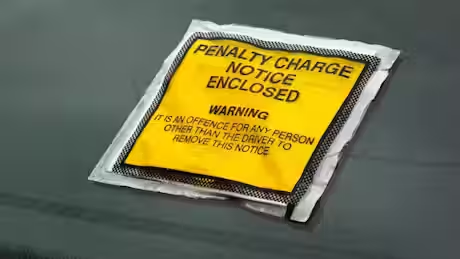Car changing is a big deal
The latest Carwow investigation finds motorists are receiving a huge number of fines, as requests to the Driver and Vehicle Licensing Agency for driver details have increased by 66% since 2020.¹
Drivers are due to receive an estimated £2.15 billion of parking and traffic fines this financial year. So far, over 30 million requests have been made for vehicle-keeper details from the Driver and Vehicle Licensing Agency.
The DVLA raised £30.2 million in gross income from sharing driver details in 2022/23, the highest level on record. This is set to decrease by an estimated 15% for the 2023/24 financial year. However, the DVLA are still expected to raise a huge £25.7 million through the sale of driver details.
Private parking companies made 11.1 million requests to the DVLA for driver details following the submission of a vehicle number plate in 2022/23. Requests from local authorities, including councils and Transport for London, topped 11.7 million.
The DVLA’s Keeper At Date Of Event (KADOE) database is accessible to registered private companies and public authorities, providing the name and address of a vehicle’s registered keeper on submission of a number plate. After obtaining these details, private companies, councils and other organisations are able to issue parking fines and other charges to drivers.
Sharing your data so you can be fined
Penalties range from as little as £25 for a parking ticket that’s issued outside London and paid within 14 days to £160 for a breach of Red Route rules in the capital. Assuming an average penalty of £92.50, drivers were fined an estimated £2.55 billion in 2022/23, up by almost 100% from £1.33 billion in 2020/21.
The 2023/24 financial year is set to see those numbers decline for the first time since 2020/21 based on results for the first three quarters, with £2.15 billion worth of penalties projected to be issued. So far, Q3 showed the largest number of requests made for vehicle keeper data, equivalent to an estimated £864 million.
Local councils and other authorities do not have to pay to access a registered keeper’s details from KADOE. But, a £2.50 fee is charged to private companies like parking firms each time they request details, which the DVLA says covers the cost of providing data.
Huge increase in local authorities accessing details
The DVLA’s gross income from paid KADOE requests may have increased dramatically over recent years, but just as noteworthy is the 48% increase in the number of times local authorities, parking firms, and toll roads have used the service from 2018/19 to 2022/23. A total of 18.7 million such requests were made in FY 2018/19, a figure that rose to 27.6 million in 2022/23.
This growth is likely due to a number of factors, including the rise of clean air zones and low-traffic neighbourhoods, which restrict access to certain roads. Penalty enforcement for these roads is often facilitated by automatic number plate recognition (ANPR) cameras, capturing vehicle registrations.
For example, Birmingham City Council made 153,662 applications for driver details via KADOE in 2018/19. This figure increased almost tenfold by 2021/22 to 1.2 million following the introduction of the city’s Clean Air Zone in June 2021.
Transport for London was the biggest individual driver of the growth in KADOE use by local authorities, making just 693,158 requests in 2018/19. This figure rose by 16% to 805,577 in 2019/20. The spread of the capital’s Ultra Low Emission Zone is likely to be behind much of that increase.
In October 2021, the zone expanded from a small central area of the city to include everywhere inside the North and South Circular roads. This caused the number of KADOE requests to grow by a further 400% to 4.1 million.
Despite these vast figures, complaints from registered vehicle keepers to the DVLA about the release of their information are relatively low. Just 1,666 informal complaints were made to the organisation from 2019 to 2022, of which just 239 were upheld. A further 232 complaints were made between 2022 and 2023 financial year.²

